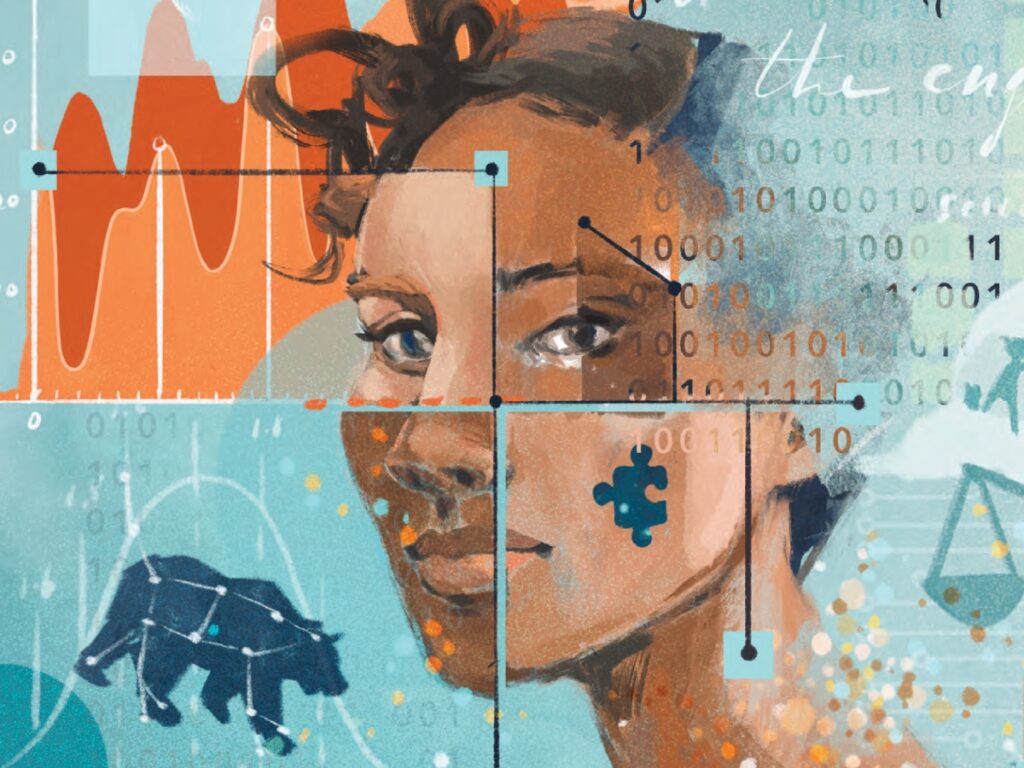How the UCLA College is harnessing a titanic new engine of equity and discovery.
Excerpt originally published at the UCLA College magazine
A Data-Driven World
In the past academic year, the UCLA Department of Statistics became the UCLA Department of Statistics and Data Science — but not because of any changes at the departmental level. Rather, the new name reflects increased recognition in an evolving world of the importance of data to everyone and everything. In this sense, the world has evolved toward the department’s view.
“This is not some trend we’re reacting to — we’ve been trying to learn from data since before data was big,” says Mark S. Handcock, professor of statistics. “These questions have always existed, and we’ve always been exploring them.”
The name expansion underscores the fact that these explorations transcend academic disciplines, adds Mario Bonk, professor and chair of the department of mathematics.
“This doesn’t mean that statistics has the monopoly on data science,” he says. “It just means that there are more opportunities for interdisciplinary collaborations on a wider, more impactful scale.”
Proof positive: UCLA’s data theory major, which was established in 2019 and spans math as well as statistics and data science. Now one of the most popular majors in either department, it is primarily intended for students who wish to gain a deeper understanding of the principles underlying data science so they can build tools, theories and processes to further the field.
“It’s an innovative major that is very different from the cookie-cutter data science majors cropping up at universities all over the country. We’ve given it a more theoretical focus,” says Mason Porter, professor of mathematics. “We’ve created a lot of innovative new courses for it, including data-driven modeling of complex systems, the societal impact of data and an ‘Experience of Data Science’ capstone in which students work on teams with data from an industrial partner.”
In 2021, UCLA also established a social data science minor — created by Handcock — for students majoring in social science disciplines. The demand for such courses and expanded programming reflects the real-world need for graduates who can work with data — a need that continues to grow stronger.
“In all the rankings, like in U.S. News & World Report, statisticians and data scientists are at or near the top of the best jobs,” says Hongquan Xu, professor and chair of the UCLA Department of Statistics and Data Science. “The job opportunities are just incredible. At our ‘Data Theory in the World’ seminar, people in the industry shared with our students that for every graduate in this field, there are at least five job offers.”
It makes sense. After all, the applications of data and the synergy of math and statistics surround our society in every way possible. Take, for example, the attempt to successfully launch self-driving cars.
“This has only become possible by new methods that are able to process huge data in real time,” says Bonk. “And everything that’s under the hood consists of powerful mathematical methods.”
That said, there is a tendency by the media and the general public to reduce these types of efforts, initiatives, research and breakthroughs to the simplest terms.
Rather than focusing on whether or not data is large, we should be focusing on analyzing data well and analyzing it responsibly with respect both to scientific rigor and to societal impact.
— Mason Porter
“I think that people use the term ‘big data’ without really knowing what they mean by it. People ought to focus on whether data is ‘good,’ ‘bad,’ ‘ugly’ or ‘useful.’ Any of these adjectives can apply to ‘big data,’ and any of them can apply to ‘small data,’” Porter continues. “Rather than focusing on whether or not data is large, we should be focusing on analyzing data well and analyzing it responsibly with respect both to scientific rigor and to societal impact.”
This thoughtful, grounded approach is especially important in light of how mighty a force data truly is.
“Data is the new electricity. It’s moved from being seen as an incredible, magical thing that we can’t possibly understand to something that we can at least observe in terms of its enormous energy and use,” says Handcock. “And then, over time, we forget about the incredible power of it. We switch on our lights, our computers; everything just runs in the background.
“We’re going through the same things with data — soon enough, we won’t be talking about big data anymore,” Handcock concludes. “It will just be part of everything that we all do.”
